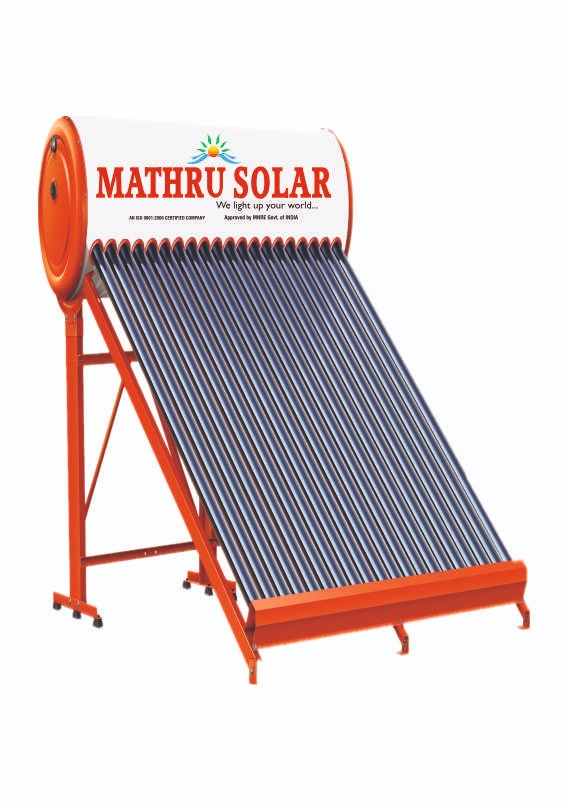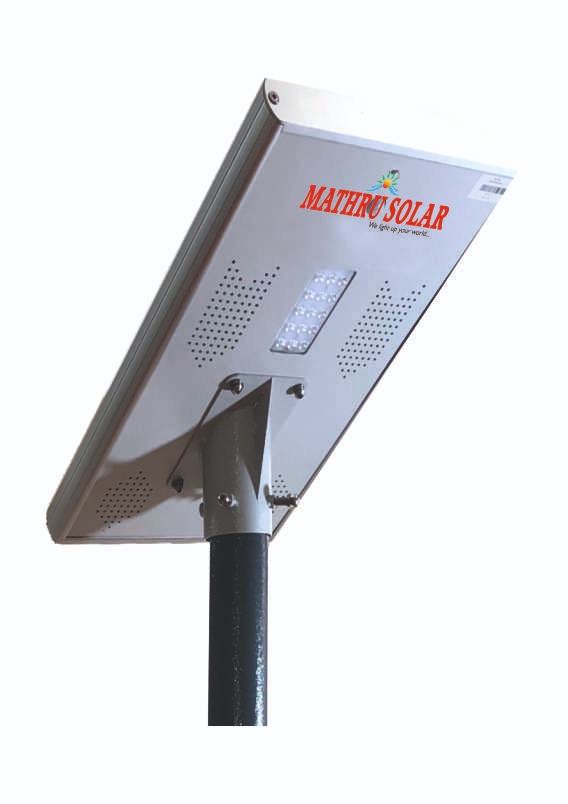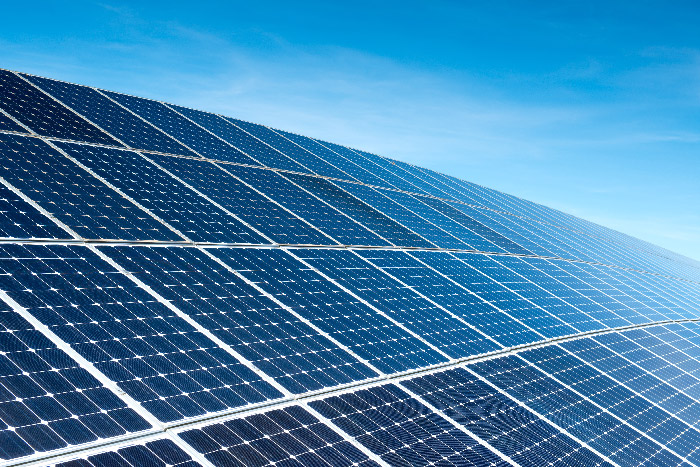FACTS ABOUT SOLAR SYSTEM

SOLAR WATER HEATING SYSTEM
The system is a device operating on renewable energy that helps heating water by using the energy from Sun, popularly known as Sun Rays. The energy is totally free with an affordable onetime cost for the device. A 100 liters capacity of Solar Water Heating System can replace an electric geyser for residential use and save approximately 1500 units of electricity annually and can prevent emission of 1.5 tons of carbon dioxide annually.
A Solar Water Heating System has a Solar Collector to collect solar energy or sun rays, an insulated storage tank to store hot water, supporting stands and connecting pipes. Sun rays fall on the Collector Panel and a black absorbing surface inside the Collector absorbs solar radiation and transfers the heat energy to water flowing through it. Heated water is collected in a tank which is insulated to prevent heat loss. Circulation of water from the tank through the Collector and back to the tank continues automatically due to thermo siphon system.
There are two types of solar water heaters. Flat Plate Solar Heater is one where solar radiation is absorbed by flat plate collectors which consist of an insulated outer metallic box covered on the top with Toughened glass. Evacuated Tube Collector is one where the Collector is made of double layer borosilicate glass tubes evacuated for providing insulation.
Typically, a Solar Water Heating System made by using materials as per BIS specification may last for 15–20 years depending on the general upkeep.

All the State Electricity Boards and Corporations have now made mandatory installation of Solar Water Heating System as one of the conditions to be met for sanction of power requirements applied for by domestic or commercial or industrial user.
A combination of policy and monetary encouragement by the Government, mandatory requirement for obtaining power sanctions from electricity boards and corporations, availability of energy at affordable initial investment complimented by availability of soft loans, driven by technology which is generic and the angle of clean energy places the product with high market potential at least for the next 10 years and the requirement for low capital investment to manufacture the device makes the device the perfect fit for manufacture in the SME sector.

NON-CONVENTIONAL SOURCES OF ENERGY
As a part of its comprehensive response to promote energy security in the country, besides initiating measures to harness the potential of atomic energy, the Government encouraged every initiative to tap non-conventional sources of energy like Solar Energy, Wind Energy, Sea Wave Energy, Bio-Sources of Energy, which are considered and recognized as non-polluting and clean sources of energy. Every enterprise promoted with the objective to tap and harness commercially the non-conventional sources of energy is encouraged by both the Central and State Governments with monetary and non-monetary incentives. One can find a combination of socially useful and commercial purposeful vehicle in the use of non-conventional sources of energy.



